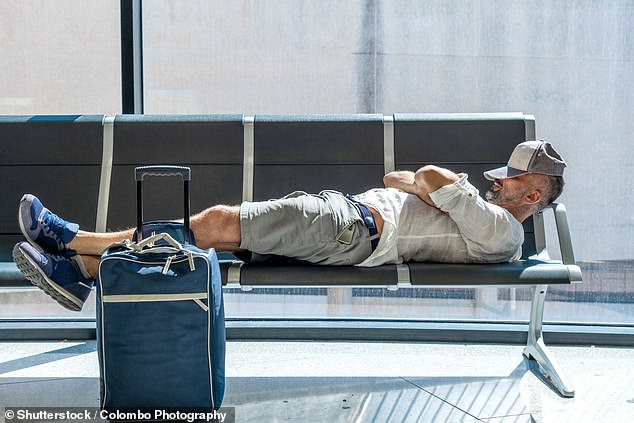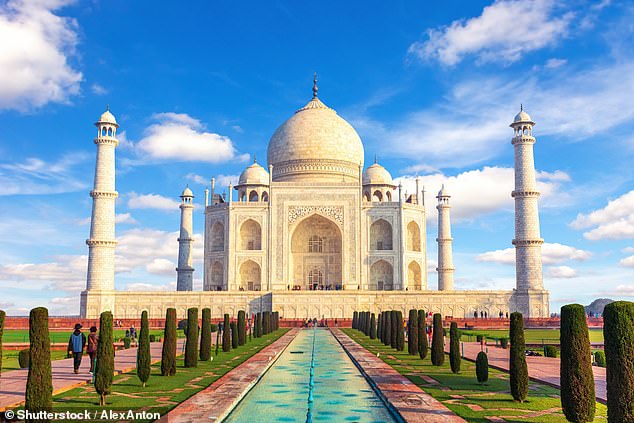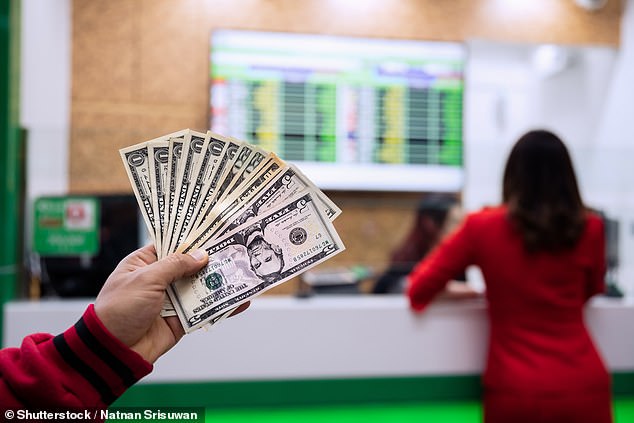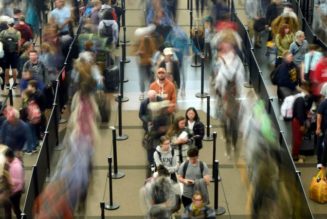
The internet is awash with travel myths that can make the already complicated process of trying to book a dream holiday a nightmare.
I’m Gilbert Ott, frequent flier and Founder of travel site godsavethepoints.com, and I’m here to dispel 11 of the worst examples.
Read on for information that’ll ensure your next trip gets off on the right foot…
MYTH ONE – to get flight upgrades, don’t assign a seat
Not only are you not going to land a cushy upgrade with this advice, you’re probably going to get the worst seat in the cabin you paid for. Many airlines charge for advanced seat assignments, but there’s no advantage to not assigning a seat at all when they become free to select at check in.
Upgrades are dished out to top-tier customers or travellers who have been inconvenienced and it’s almost never based on not having a seat.
Long story short: you should always assign a seat as quickly as you can.
MYTH TWO – there’s one magical cure for jet lag

If there is, the closest thing is melatonin – but there’s not. Fighting jet lag is about masterfully planning and orchestrating a series of events that keep you hydrated, get your eating cycles on destination time and send the correct signals to your brain about when you’re tired and what time it really is. It’s about light, diet, rest and invigorating your body, in a masterful concerto.
Fasting, including resisting alcohol, is very sadly one of the best ways to avoid jet lag on significant time zone changes.
MYTH THREE – all touristy things are bad
There’s a never-ending supply of tourist mistakes around the world, but being a snob is one of the biggest. Some places, no matter how touristy, are worth visiting even if just for the view, the scent, the history or the waves.
Don’t be so cool that you miss one of the best attractions and see what makes people happy by thinking you’re Anthony Bourdain. There was only one.
Be as willing to explore the pop culture stuff as you are to jump off the beaten path and you will be rewarded with a wealth of happiness and cultural understanding.
MYTH FOUR – use home currency when paying abroad
Travellers throw away billions of collective dollars every year by getting short-changed on credit card transactions abroad. It’s called DCC, or dynamic currency conversion. The next time you hear ‘it doesn’t matter which currency you choose’, they’re wrong and usually lying.
To avoid this frustrating travel myth, always choose the currency of the country you’re standing in – not the currency you use at home. Just make sure you use a credit card with no foreign exchange fees too. Basically: pay in whatever currency is the local currency, every time.
MYTH FIVE – all hotel booking sites offer the same price
Hotels love offering ‘best rate guarantees’, but those are based on the best rates you can find publicly. The truth is: there are better rates out there in private. Travel agents and private hotel membership can offer rates that aren’t shown to the general public via things called ‘bed banks’.
Though they sound dingy, they’re worth learning about. They’ve saved godsavethepoints.com up to $1,000 (£806) on just a three-night stay for us before. Never buy a hotel room without checking at least three websites, comparing the price with booking directly and then also looking into any membership sites, or travel agent perks.
MYTH SIX – countries with travel warnings should always be avoided

Dreaming of going to Rome, Paris, Turks and Caicos, Cancun or the Taj Mahal on your next vacation? If you follow every travel warning, you’ll never get there. Travel bans are different, but warnings at most levels are just warnings, not advice not to go.
The United States issues travel warnings on four levels, and these “Level 2” countries mean to simply exercise increased caution and be careful in large crowds. Basically, don’t be an idiot – which is good advice anywhere.
The world is too amazing to miss.
MYTH SEVEN – there’s a magic day or week to book travel
Know this: Black Friday and Cyber Monday are no joke, but they’re the very closest thing you’ll find to a magical day to book travel. Hint: it’s not ‘Tuesday’. To score the best flight deals, it’s often more about when you want to go than when you want to book, and setting price alerts to see when prices do change.
Want to really win?
Think about changing your travel plans to shoulder season months when airfare can be 43 per cent lower or better. As far as magic days, it’s easier to talk about ones to avoid, like any number within seven days of flying, when last-minute penalties kick up, unless you book a package with hotels too.
Also, don’t be afraid to learn everything you can about Google Flights, so you can let the best deals you’ve searched for come to your inbox. Setting price alerts early and sitting back and relaxing is often the best strategy to save.
MYTH EIGHT – it’s always cheaper to buy wine when you visit a country
Wrong, and to the tune of 20 per cent in some places. It’s true: it’s cheaper to buy (great) wine in France than just about anywhere else on earth, but some countries are far more focused on exporting their precious grapes, than travellers guzzling wine on home soil.
In Australia, it’s actually 20 per cent cheaper if you buy the wine and have it shipped out of the country, which basically means it’s the same price outside of the country too. If you want to stay extra savvy, Vivino is the best wine app for travellers, in our opinion.
MYTH NINE – the airport is the best place to take money out

This is flat-out wrong. Despite the ‘no fee’, ‘no commission’ or other alluring neon signs you’ll find, you’re getting duped another way. These money exchange services use a consumer rate of exchange that is often 10 per cent worse than the actual current exchange rate offered at that moment between banks.
It’s almost always cheaper to take out one large sum with your debit card abroad, paying just one ATM fee, or ideally – none. By doing so, you’ll get a ‘bank rate’ of exchange, which can save 10 per cent or more. Just tell your bank you’re travelling first.
MYTH 10 – the Northern Lights are only in Iceland

You’ve have to give Iceland credit. Despite the Aurora Borealis existing since the dawn of time and covering vast swathes of the upper Northern Hemisphere, travellers seem convinced that Iceland is the only place offering the dazzling, electrically charged light display.
They’re wonderful there, no doubt, but there are so many other places to see them, and many that are cheaper. The Northern Lights are best viewed anywhere with minimal artificial light, so the more remote you can go the better. There are countless places to find them, such as Norway, Canada, or Lapland.
MYTH 11 – frequent flyer miles are too complicated to bother with
Why bother, right? No. Credit card points and airline miles may be complicated, but anyone not bothering with collecting them is simply a fool. At the very least, they’re a rebate towards future travel.
The way the industry is going, points are becoming easier to use and even have more defined value than ever. For example, Delta lets you use 10,000 points to take $100 off a flight. This is a myth too expensive to believe. You need to play the points game, and you can do it without even flying or having a credit card.
The original version of this story appeared on godsavethepoints.com.









